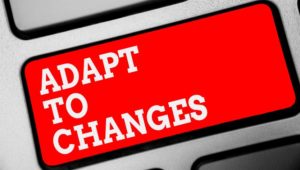Table of Contents
The logo often stands out as the most recognizable among the various elements that contribute to a brand’s identity. It is a visual anchor that instantly conveys a brand’s ethos, promise, and offerings. A well-crafted logo captures attention and can instill trust, elicit emotions, and foster brand loyalty.
The relationship between a brand and its logo is intricate, weaving the brand’s vision with the impressions it aspires to imprint on its target audience. This article unravels this interdependent connection, highlighting a logo’s instrumental role in molding a brand’s distinct identity.
The Role Of Logo In Building Brand Identity
A Logo As The First Impression
First impressions matter, especially in branding. A logo, often the first touchpoint between a brand and its potential customers, can make or break this initial encounter.
If well-designed, it can capture attention, intrigue the viewer, and encourage further interaction. Conversely, a poorly designed logo may deter potential customers or communicate unintended messages.

While the aesthetics of a logo are crucial, it’s also important to ensure that it resonates with the intended audience. Brands should understand their target demographics, ensuring the design speaks to their preferences, aspirations, and values.
Fortunately, with the rise of technology, the best AI logo maker and other useful tools can enable businesses to craft bespoke logos with precision and efficiency.
Consistency In Branding
Consistency in branding is pivotal for brand recognition and trust-building. As a central element of a brand’s visual identity, the logo is crucial in this consistency. Whether on business cards, websites, product packaging, or social media profiles, the logo remains a constant, reinforcing the brand’s identity at every touchpoint.
This consistency creates familiarity. The more frequently consumers encounter a consistent logo, the more they begin to recognize and trust the brand it represents. Over time, this recognition can lead to preference, with customers choosing a familiar brand over an unfamiliar competitor.
Moreover, a consistent logo demonstrates professionalism and attention to detail, traits that many customers appreciate and seek out. Seeing the same logo across multiple platforms reassures them of the brand’s legitimacy and dedication to its identity.
Emotional Connection And Trust
Humans are emotional beings, often making decisions based on feelings rather than logic. A logo’s colors, shapes, and design elements can evoke varying emotions in its viewers, ranging from trust and comfort to excitement and curiosity.

For instance, certain colors are known to elicit specific feelings. Blue, often used in the logos of financial institutions, evokes feelings of trust and stability. Red, on the other hand, is a color of passion, urgency, and excitement. By leveraging these associations, brands can communicate their values and ethos through their logos.
Furthermore, as customers interact positively with a brand, they associate these positive experiences with the brand’s logo. Over time, this association strengthens, turning the logo into a symbol of trust and reliability in the eyes of the consumer.
Differentiation In The Market
In crowded markets, differentiation is key. A unique, memorable logo can set a brand apart from its competitors, providing a competitive edge. While products and services may be similar, a logo can tell a distinct brand story, positioning the brand uniquely in the minds of the consumers.
This differentiation is crucial for brand recall. When consumers think of a specific product or service category, the logos of standout brands often come to mind first. Having successfully differentiated themselves, these brands enjoy the advantage of being top-of-mind for consumers.
Moreover, a unique logo can prevent brand confusion. In markets where many brands offer similar products, a distinctive logo ensures that consumers can easily identify and choose the desired brand without hesitation.
Evolution And Adaptability
While consistency is crucial, brands must also evolve to stay relevant. As a part of this evolution, logos need to adapt to changing times, trends, and market dynamics.
However, this doesn’t mean a complete overhaul every few years. Successful brands often make subtle tweaks to their logos, retaining their core essence while ensuring modernity and relevance.

The best logos are timeless but also adaptable. They can be resized for various platforms, from the tiny space of a mobile app icon to a large billboard. They maintain their clarity and message regardless of where they’re placed.
This adaptability also means that as brands expand into new markets or diversify their offerings, their logos can evolve in tandem. Such evolution, done thoughtfully, ensures that the brand remains fresh and relevant in the ever-changing business landscape.
The Bottom Line
A logo is more than just a visual element; it’s a brand’s ambassador, storyteller, and differentiator. From making that crucial first impression to fostering trust and building emotional connections, a logo’s role in brand identity is multifaceted and profound.
Whether designed by the most adept human designers or harnessed through the power of the best AI logo maker, a thoughtfully crafted logo becomes the cornerstone of a brand’s identity, paving the way for enduring recognition and success.
Author Profile

Latest entries
 BusinessFebruary 17, 2026Why Online Shops Need a Fulfilment Centre?
BusinessFebruary 17, 2026Why Online Shops Need a Fulfilment Centre? LawJanuary 9, 2026Emily Windsor On The Judgment Calls Barristers Make Daily
LawJanuary 9, 2026Emily Windsor On The Judgment Calls Barristers Make Daily TravelJanuary 7, 2026Key Considerations When Installing Temporary Barriers for Roadworks
TravelJanuary 7, 2026Key Considerations When Installing Temporary Barriers for Roadworks BusinessNovember 21, 2025A Practical Guide to Using LMS Platforms for Better Onboarding
BusinessNovember 21, 2025A Practical Guide to Using LMS Platforms for Better Onboarding




